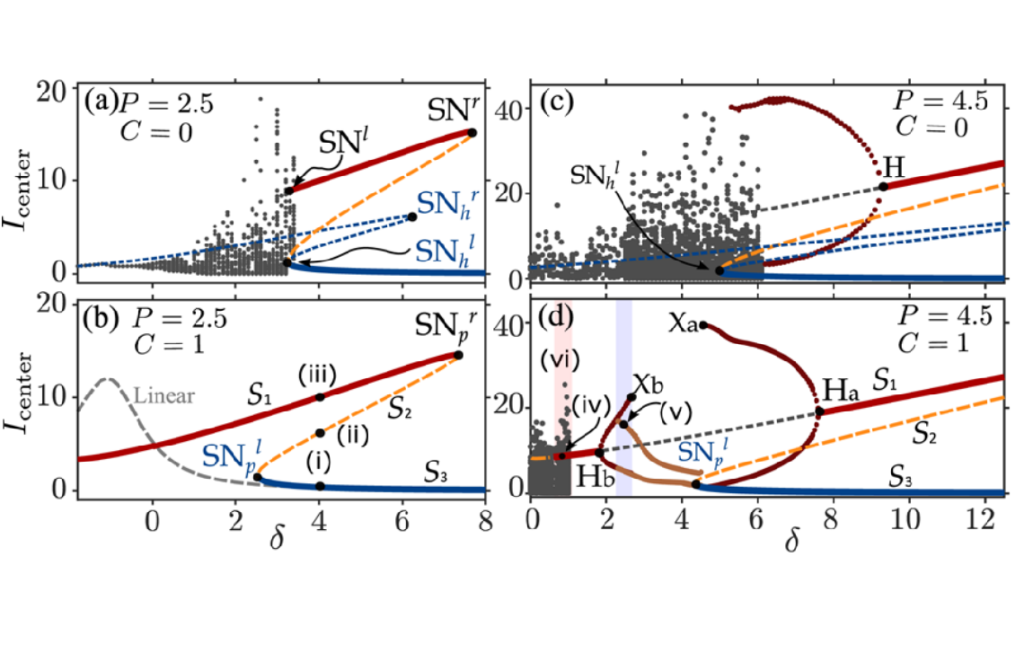
We analyze the stability and dynamics of dissipative Kerr solitons (DKSs) in the presence of a parabolic potential. This potential stabilizes oscillatory and chaotic regimes, favoring the generation of static DKSs. Furthermore, the potential induces the emergence of new dissipative structures, such as asymmetric breathers and chimera-like states. Based on a mode decomposition of these states, we unveil the underlying modal interactions.
